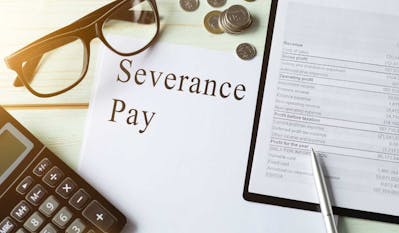In this guide, we’ll cover the core processes, compliance obligations set by the Inland Revenue Department, what financial documents are required, and the options available for managing your accounting and reporting.
What’s the Difference Between Bookkeeping and Accounting in Hong Kong?
Bookkeeping involves recording daily financial transactions such as income, expenses, payroll, and invoices. It forms the foundation for all financial reporting.
Accounting, on the other hand, uses the data from bookkeeping to analyze financial performance, prepare financial reports, and handle tax filings and audits.
In Hong Kong, all companies must comply with the Inland Revenue Department (IRD) regulations. Regardless of company size, bookkeeping and accounting are essential for:
- Staying compliant with Hong Kong tax laws
- Avoiding penalties
- Making smart business decisions
Bookkeeping vs Accounting in Hong Kong
To quickly understand the roles of each, here’s a simple table highlighting the key differences in bookkeeping vs accounting in Hong Kong.
| Aspect | Bookkeeping | Accounting |
|---|---|---|
| Purpose | Record daily financial transactions (sales, expenses, payroll, etc.) | Analyze, interpret, and summarize financial data for reporting and compliance |
| Focus | Data entry and record-keeping | Financial strategy, tax planning, and regulatory reporting |
| Tools Used | Xero, QuickBooks, MYOB | Xero, ERP systems, audit and tax software |
| Who Performs It | Bookkeeper or admin staff | Certified accountant or CPA |
| Regulatory Role | Supports internal tracking and audit prep | Must comply with HKFRS and local audit/tax regulations |
| Output | General ledger, transaction logs, expense reports | Financial statements, audit reports, tax filings |
| Required by Law | Yes — all businesses must maintain accurate records for 7 years | Yes — businesses must submit audited financial statements annually |
Next, let’s break down how bookkeeping works in Hong Kong.
Bookkeeping Process
Here are the core responsibilities most companies handle:
- Monitoring customer invoices and payments: Maintain separate records for amounts owed by customers (accounts receivable) and amounts owed to suppliers (accounts payable).
- Managing their assets: Keep a register of long-term investments such as property and equipment (fixed assets).
- Planning and overseeing cash flow: Have cash flow statements with a forecast of incoming and outgoing funds.
- Compiling financial statements: Regularly summarize your company's financial health through documents like balance sheets and income statements.
- Checking bank accounts: Verify that financial records align with bank statements to ensure accuracy.
- Conducting regular performance reviews: Analyze business finances on a monthly, quarterly, and annual basis to identify trends and make sound business decisions.
- Keeping leadership informed: Provide routine reports containing financial insights to inform strategic planning and decision-making processes.
Bookkeeping Methods
There are two primary methods of bookkeeping services in Hong Kong: single-entry bookkeeping and double-entry bookkeeping.
Single-Entry Bookkeeping
This method records each transaction only once—either as income or as an expense. It’s simple and easy to manage, which makes it a basic option for very small businesses with limited transactions.
However, single-entry bookkeeping does not track assets, liabilities, or equity, making it difficult to get a full picture of your company’s financial health.
Double-Entry Bookkeeping
Double-entry bookkeeping records each transaction twice: once as a debit and once as a credit in different accounts.
It also provides a more complete view of your finances by tracking assets, liabilities, income, and equity.
Bookkeeping can be time-consuming, especially if you lack experience. In addition, mistakes in bookkeeping can have costly consequences.
Bookkeeping in Hong Kong: Compliance Requirements
If you’re running a business in Hong Kong, keeping proper books isn’t optional—it’s a legal requirement. The IRD and Companies Registry have clear rules all companies must follow to remain compliant.
1. Maintain Accurate Records
All companies must keep clear, organized records that reflect their financial activities. These must be retained for at least seven years from the date of each transaction.
For a breakdown of what types of records you need to maintain, see the next section: "What Accounting Records Are Required in Bookkeeping?"
2. Where Records Must Be Stored
Records must be stored in Hong Kong, either in physical or digital form.
If you relocate your statutory books or records, you must notify the government within 15 days.
Failure to comply is an offense under the Companies Ordinance.
3. Annual Returns and Tax Filing Obligations
- File your Annual Return with the Companies Registry
- Submit your Profits Tax Return (PTR) and audited accounts to the IRD
- You typically have one month to file once notified by the IRD (extensions are possible)
- Missing deadlines may result in penalties
4. Additional Compliance Reminders
- Include names and addresses of directors, shareholders, and secretary in your filings
- Returns must be signed and filed within 42 days of your company’s incorporation anniversary
- Any new share allotments must be reported within one month
What Accounting Records Are Required in Bookkeeping?
Before you can generate reports or file taxes, you need to keep accurate and complete accounting records. These are the source documents and ledgers that support every transaction and form the foundation of your bookkeeping system in Hong Kong.
These records fall into two key categories:
1. Source Documents
These are the original documents that support your transactions. They act as proof and are critical for audits and reconciliations.
- Invoices: Sales and purchase invoices that document customer and supplier transactions
- Receipts: Proof of payments received or expenses paid
- Bank Statements: To verify and reconcile your bank account balances
- Contracts: Agreements related to sales, services, loans, or assets
- Payroll Records: Salary, MPF, and tax deductions for each employee
- Expense Reports: Claims for business-related spending (e.g. travel, office supplies)
- Loan Documents: Details of borrowed funds and repayment terms
2. Books of Account
These are structured records where financial transactions are recorded, classified, and summarized for reporting purposes.
- General Journal: A daily log of all financial transactions in chronological order
- General Ledger: The central record that organizes transactions into accounts (assets, liabilities, equity, income, expenses)
- Cash Receipts Journal: Records all incoming cash
- Cash Disbursements Journal: Tracks all outgoing payments
- Sales Journal: Lists all sales made on credit
- Purchase Journal: Lists all purchases made on credit
Together, these records form the backbone of your bookkeeping system in Hong Kong.
Keeping them complete and up to date makes it easier to generate accurate financial statements, comply with local laws, and avoid costly errors.
Accounting Process
As per Section 373 and Part 9 of the Hong Kong Companies Ordinance, every company must uphold accurate accounting records and meet annual statutory audit requirements.
Financial Statements
In Hong Kong, every company—unless exempt—must have its annual financial statements audited by a certified public accountant (CPA), no matter the size or industry.
Financial statements must comply with the Hong Kong Financial Reporting Standards (HKFRS), issued by the Hong Kong Institute of Certified Public Accountants (HKICPA).
If your financials are shared outside your company, you also need to follow the Hong Kong Generally Accepted Accounting Principles (GAAP). These standards help you prepare reliable, general-purpose financial reports.
What Is Included in Your Financial Statements?
Once your bookkeeping is complete, your accountant uses the records to prepare financial statements for audits, tax filings, and reporting.
Businesses must record transactions in the general ledger, which should be categorized into specific accounts. This detailed record must adhere to specific standards and must comprise the following elements:
| Statement | Purpose |
|---|---|
| Statement of Financial Position | Shows the company’s financial position (assets, liabilities, equity) as of the financial year-end. |
| Statement of Comprehensive Income | Reports revenue, expenses, and net profit or loss for the year. |
| Statement of Changes in Equity | Tracks movements in equity, including retained earnings and dividends. |
| Statement of Cash Flows | Presents cash movements categorized by operating, investing, and financing activities. |
| Notes to the Financial Statements | Provides explanatory details to supplement the main statements. |
Below are the following items in the financial records:
| Category | Details |
|---|---|
| Sales and Purchases | All sales and purchases should be documented with proper invoices or receipts. |
| Expenses | Include rent, utilities, professional services, salaries, and director fees. |
| Bank Statements | Monthly bank and payment processor statements are used to verify income and expenditures. |
Annual General Meeting
The Annual General Meeting (AGM) is important in the accounting cycle. It’s where companies formally present their audited financial statements to shareholders.
The AGM must be held within six months of the company’s financial year-end. During this meeting, directors share the company’s financial performance and respond to shareholder questions about the business.
The financial statements presented at the AGM include:
- Balance Sheet
- Income Statement
- Cash Flow Statement
- Notes to the Financial Statements
These documents must be prepared in line with HKFRS or IFRS and reflect the company’s financial standing. For most businesses, the AGM serves as the final step in the accounting process—offering transparency, accountability, and compliance with Hong Kong company law.
Your Options for Managing Accounting in Hong Kong
Once you realize that waiting until the end of the year is not a good option, you will be tempted to use accounting software to keep track of your accounting and bookkeeping all year long.
In Hong Kong, businesses typically choose between accounting software, outsourced accounting services, or a hybrid of both.
Solo Accounting Software
Some companies use accounting and bookkeeping software to help them report and manage their own bookkeeping. Using this software smartly can make financial management easier, but it can't replace the expertise of an accountant.
This is a good option for businesses that want more control, but it comes with downsides. As a result, you may end up spending a lot of time working just inputting your invoices and other records into the accounting software that you chose.
Bookkeeping and Accounting Services
Another option is to outsource your accounting to a Hong Kong-based firm. While this might be slightly more expensive than software alone, it removes the guesswork. These firms manage everything from data entry to tax filing, helping you stay compliant with local standards.
This route is especially popular with new companies or small operations, as it helps them understand how to structure their finances properly from day one.
Which Option is Right for You?
There’s no perfect answer—it depends on your team, workload, and comfort with financial tasks. Many businesses even take a hybrid approach, using software to manage day-to-day entries while relying on an accountant for monthly reviews or tax season.
The key is to choose a setup that keeps your books accurate, your taxes compliant, and your time focused on growing the business, not chasing receipts.

Having Air Corporate for a Modern Bookkeeping and Accounting Service
How we can effectively handle the bookkeeping and accounting for your Hong Kong company:
Monthly Bookkeeping and Accounting Packages
The idea is simple: we give you access to your own dedicated professional accountant, available for you each day, but without the trouble or cost of having an accountant in-house on your payroll.
When you use our service, your accountant will do many things to make your life easier such as:
- Sending your invoices
- Matching your business's financial transactions with your bank statements
- Preparing your monthly expense reports
- Payroll and MPF filings if you have employees, and
- Your financial statements
All this is done using top-notch cloud accounting software that you can access anytime.
Communication with your accountant is easy through WhatsApp or email. And when any information or document regarding your accounting is missing, your accountant will simply chase you.
Tax Planning and Optimization
Finally, because accounting does not make much sense without looking at tax matters, our monthly accounting package includes two conference calls each year to help with your Hong Kong company's tax planning and optimization.
Look no further if you want efficiency and peace of mind for your Hong Kong company's bookkeeping and accounting.







